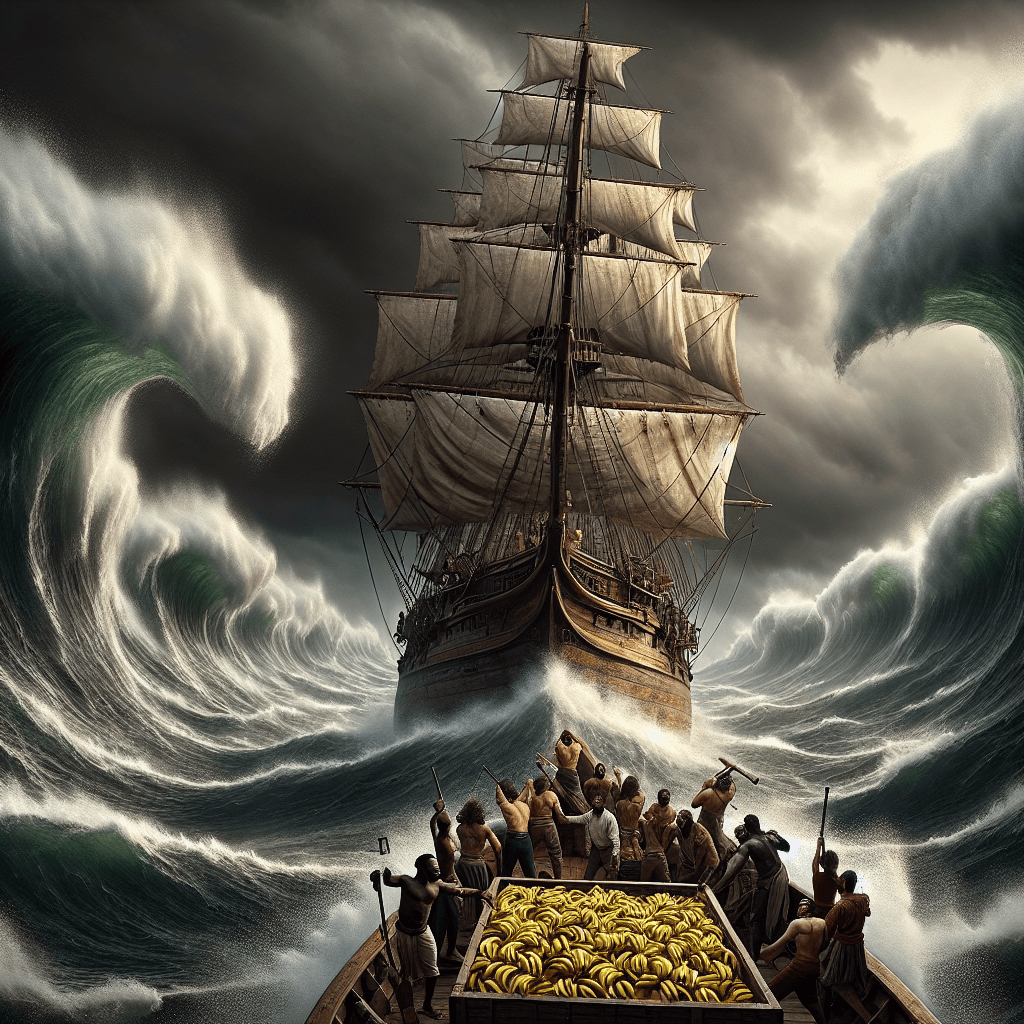Beyond the Peel: Why Do Sailors Fear Having Bananas Aboard Their Ships
Ever heard the curious maritime superstition that bananas on a ship are bad luck? This particular fear has deep roots in seafaring history and a surprising number of plausible explanations.


Too Long; Didn't Read
The superstition that bananas are bad luck on ships stems from historical seafaring associations with everything from poor fishing and spoiled cargo to lost vessels.
Beyond the Peel: Why Do Sailors Fear Having Bananas Aboard Their Ships?
Have you ever heard the curious maritime superstition that bringing bananas aboard a ship invites bad luck? While it might sound like an old wives' tale, this particular fear has deep roots in seafaring history and a surprising number of plausible explanations. For centuries, seasoned sailors have whispered warnings about the yellow fruit, associating it with everything from poor fishing to lost vessels. This post will delve into the fascinating reasons why sailors fear having bananas aboard their ships, exploring the historical context and practical concerns that fueled this enduring nautical belief.
Unwanted Stowaways and the Golden Age of Sail
One of the most compelling and historically grounded reasons for the banana taboo dates back to the 17th and 18th centuries, the peak of the sailing ship era and the rise of international fruit trade.
- Venomous Invaders: Bananas were often transported in large, unrefrigerated bunches. These dark, humid clusters provided an ideal hiding place for unwanted critters. Chief among these were venomous spiders, like the Brazilian Wandering Spider, whose bite could be fatal. Snakes and other insects also hitched rides, posing a direct threat to the crew in the confined spaces of a wooden ship. The sudden appearance of a deadly spider emerging from a banana crate would certainly be enough to make any sailor wary of the fruit.
The Perils of Perishability and Gas
Beyond dangerous creatures, the nature of bananas themselves presented challenges on long voyages.
- Rapid Ripening and Spoilage: Bananas ripen relatively quickly. As they ripen, they release ethylene gas. This natural plant hormone accelerates the ripening process not only in other bananas but also in other fruits and vegetables stored nearby. On a long journey where food preservation was critical, having a cargo of bananas spoil the rest of the ship's precious food stores was a serious concern. This could lead to food shortages and discontent among the crew.
- Attracting Pests: Rotting fruit, including bananas, would naturally attract insects and vermin, further compromising hygiene and comfort onboard.
Bad Luck for the Fishing Folk
The banana superstition is particularly strong among fishermen, and several theories attempt to explain this:
- Speed Kills the Catch: Ships transporting bananas needed to reach their destination quickly before the cargo spoiled. This meant they often sailed at top speed, without stopping or slowing down for fishing. For fishing vessels, having bananas aboard became synonymous with a poor catch because time wasn't dedicated to actually fishing.
- Slippery When Peeled: Discarded banana peels on deck could create a dangerously slippery surface, a significant hazard on a rocking ship. While a practical concern, it could easily contribute to the fruit's unlucky reputation after a few bad falls.
- Scent of Misfortune?: Some older beliefs suggested that the scent of bananas repelled fish, though this is less scientifically supported.
Tales of Woe and Disappearing Ships
Maritime history is filled with tales of misfortune, and bananas sometimes became the scapegoat.
- Lost at Sea: It's been noted that many ships that met disastrous fates – sinking in storms, crews succumbing to sudden illness, or simply vanishing – were reportedly carrying bananas. While likely coincidental, or due to factors like faster, riskier routes taken by banana boats to prevent spoilage, these incidents would have solidified the fruit's unlucky aura in the highly superstitious minds of sailors. When faced with the unexplained, it's human nature to look for patterns, and the presence of bananas on ill-fated voyages provided a convenient, if irrational, explanation.
Modern Echoes of an Ancient Fear
While modern shipping has largely mitigated issues like pest stowaways and spoilage with refrigeration and better pest control, the superstition about bananas persists, particularly in recreational boating and fishing circles. For many, it’s now more of a tongue-in-cheek tradition or a nod to nautical heritage. However, some old salts still genuinely avoid bringing bananas onto their boats, preferring not to tempt fate. Charter fishing boats, for instance, might politely ask patrons to leave their bananas on the dock.
In conclusion, the sailor's fear of bananas aboard ships isn't just a whimsical notion. It's a complex superstition woven from a tapestry of historical experiences, genuine practical concerns, and the inherent human tendency to find explanations for misfortune. From deadly spiders lurking in fruit bunches to the rapid spoilage caused by ripening bananas and the ill-fated voyages of banana-carrying ships, the reasons are as varied as they are fascinating. While science can explain some of the phenomena, the enduring power of this maritime belief highlights the rich and often mysterious culture of life at sea. So, next time you're invited on a boat, perhaps it's best to leave the bananas at home – just in case.


